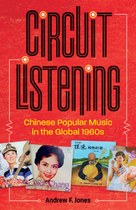Taipei Times: How pirated records from Taiwan kept Asia rocking
 Taiwan became the world leader in Chinese-language pop music in the 1980s, but two decades earlier, the country was already leading Asia in a very different aspect of the music industry –– pirated vinyl records.
Taiwan became the world leader in Chinese-language pop music in the 1980s, but two decades earlier, the country was already leading Asia in a very different aspect of the music industry –– pirated vinyl records.
In 1965, more than 45 factories, most of them in what is today’s Sanchong District (三重) in New Taipei City, churned out around 350,000 pirated records a month, everything from the Beatles to Hong Kong’s latest pop stars.
This reign of piracy continued until the advent of US copyright sanctions in the early 1990s, and along the way helped power the soundtrack to the Vietnam War in Asia. Records flowed out of shops located just outside of US military bases in Taipei, Taichung and Kaohsiung, then diffused to US outposts throughout Asia –– to Vietnam, Japan, Korea, Thailand and the Philippines.
Exports of Taiwan bootlegs, via both US military and other channels, were then estimated in excess of 150,000 records a month. One smuggler was caught en route to Hong Kong with over 900 Taiwanese bootleg records in a suitcase. The scale and reach of the industry makes one wonder, when Martin Sheen’s character in Apocalypse Now sails up the river to find Colonel Kurtz, is Kurtz listening to Taiwanese bootleg vinyl?
Pirate records and other Asian music distribution networks are the subject of a fascinating new book, Circuit Listening: Chinese Popular Music in the Global 1960s by Andrew Jones, a University of California at Berkeley professor of Chinese.
By: David Frazier
Story Date: 2021-03-31T16:00:00